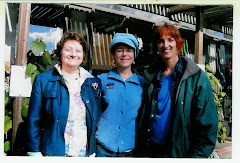Group ALEPH
Young children learn best through art, music, stories and drama. We want the children to love Torah and love being Jews. In this initial stage of Jewish learning, we focus on the basic mitzvot surrounding holidays, the Hebrew letters, and the foundational mitzvot (compassion, unity of life, etc.) through the basic medium of story, song, interactive technology, and playacting. Creative expression is encouraged using multiple opportunities, materials and projects related to the Jewish themes. Group Aleph meets generally every other Sunday morning in Berkeley. Weekday Aleph classes may be created based on interest and enrollment.
Group BET
When children self select to join the older group, they have the option of attending weekly on Sunday mornings in Berkeley, or on a weekday afternoon. The day and time during the week is determined based on enrollment.
Sunday Bet Curriculum
The school year 2010/2011 Hebrew curriculum may employ the Mitkadim curriculum developed by the Union of Reform Judaism as part of their Learning for Jewish Life/Chai Educational program. Mitkadem is unique because it was created to address, in a realistic way, the challenges of teaching Hebrew within environments like the Jewish Arts, Culture and Torah school setting. These challenges include:
-Frequent absenteeism and customized schedules
-Late enrollment and new students enrolling in older grades
-Varying levels of motivation and ability within the classroom
-Diverse experience and commitment of Jewish practice at home
-Limited hours at a difficult time of day for learning
-Different abilities and capabilities of our Hebrew teachers
Mitkadem's self-paced and child-centered approach allows each student to achieve according to his/her own ability, so learning challenged students and frequent absentees feel successful as well as those students who are very motivated and catch on quickly. The Mitkadem approach helps every teacher feel capable and confident of administering this program to all different kinds of student learners, identifying those students who need additional help early on.
The content of the program employs multi modalities of teaching Hebrew with hands-on interactive activities, esthetically pleasing materials, relevance to Jewish calendar events, inclusion of all levels of Jewish identification, preparation for Hebrew prayers and positive reinforcement of accomplishment and mastery of material.
The students will each have their own notebook for storing their worksheets and workbooks. They can use these materials to share their learning with family members and reference their foundation in Hebrew for on-going Jewish endeavors.
Weekday BET Curriculum
Bet Students are taught by Rabbi Sara Shendelman or a collaboration of seasoned teachers. The curriculum consists of exposure to the main archetypal stories of the Torah and early prophets and familiarity with Hebrew texts. Hebrew alphabet, reading, writing skills are further developed, along with basic vocabulary. Simple meditation and prayers and the practice of blessing are introduced. God as love and compassion is a key theme. Greater emphasis is placed on personal responsibility in the world, including the taking on of a simple mitzvah practice. We further explore the concepts of Torah as a wisdom path, deepening examination of holidays and familiarity with spiritual lineage teachers.
Both Groups
A first hand experience of Jewish culture is provided through direct experience of holiday rituals, celebrations, family traditions and historic interpretations through mock ceremonies, food, humor and demonstration.
What Our Students Take with Them:
A foundation in Hebrew, Jewish history and literature, holidays, ethics, Tikkun Olam, blessings, a spiritual and ethical world view, an understanding of the purpose of positive ritual in our lives, and loving connection to Torah, mitzvot and community.
Each grade and group of children will be given a primary ethical mitzvah to practice. By their Bar/Bat Mitzvah, they will feel comfortable in most Jewish services, knowing the flow and outline of prayer.
Monday, August 6, 2007
Subscribe to:
Post Comments (Atom)





No comments:
Post a Comment